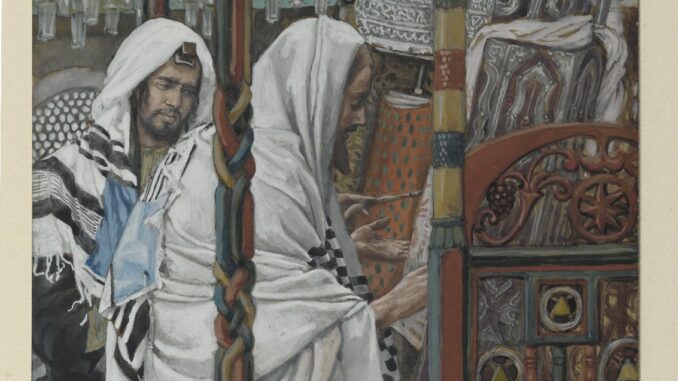
This series explores the Ten Commandments through the words and admonishments of Arthur Pink.
“Remember the sabbath day, to keep it holy. Six days shalt thou labour, and do all thy work: But the seventh day is the sabbath of the Lord thy God: in it thou shalt not do any work, thou, nor thy son, nor thy daughter, thy manservant, nor thy maidservant, nor thy cattle, nor thy stranger that is within thy gates: For in six days the Lord made heaven and earth, the sea, and all that in them is, and rested the seventh day: wherefore the Lord blessed the sabbath day, and hallowed it.” (Exodus 20:8-11).
This Commandment denotes that God is the sovereign Lord of our time. It is to be carefully noted that it consists of two parts, each of which bears directly upon the other. “Six days shall you (not “may you”) labor” is as Divinely binding upon us as “Remember the Sabbath day to keep it holy.” It is a precept requiring us diligently to attend unto that vocation and state of life in which the Divine providence has placed us, to perform its offices with care and conscience. The revealed will of God is that man should work, not idle away his time; that he should work not five days a week (for which organized labor once agitated), but six.
He who never works is unfit for worship. Work paves the way for worship, as worship is to fit us for work. The fact that any man can escape the observance of this first half of the Commandment is a sad reflection upon our modern social order, and shows how far we have departed from the Divine plan and ideal. The more diligent and faithful we are in performing the duties of the six days, the more shall we value the rest of the seventh.
It should thus be quite evident that this law for the regulation of man’s time was not a temporary one, designed for any particular dispensation, but is continuous and perpetual in the purpose of God: the Sabbath was “made for man” (Mark 2:27) and not simply for the Jew; it was made for man’s good.
The lasting nature or perpetuity of this twofold Commandment is further evidenced by the fact that in the above reason given for its enforcement there was nothing which was peculiarly pertinent to the nation of Israel, but instead, that which speaks with clarion voice to the whole human race. Moreover, this statute was given a place not in the ceremonial law of Israel, which was to be done away when Christ fulfilled its types, but in the Moral Law, which was written by the finger of God Himself upon tables of stone, to signify to us its permanent nature. Finally, it should be pointed out, the very terms of this Commandment make it unmistakably plain that it was not designed only for the Jews, for it was equally binding upon any Gentiles who dwelt among them. Even though they were not in covenant with God, nor under the ceremonial law, yet they were required to keep the Sabbath holy–“thou shalt not do any work … nor thy stranger that is within thy gates.” (v. 10). “The seventh day is the Sabbath of the Lord your God”. Note well it is not said (here, or anywhere in Scripture) “the seventh day of the week,” but simply “the seventh day,” that is, the day following the six of work. With the Jews it was the seventh day of the week, namely, Saturday, but for us it is–as the “another day” of Hebrews 4:8 plainly intimates–the first day of the week, because the Sabbath not only commemorates the work of creation, but it now also celebrates the yet greater work of redemption. Thus, the Lord so worded the fourth Commandment as to suit both the Jewish and the Christian dispensations, and thereby intimated its perpetuity. The Christian Sabbath is from midnight Saturday to midnight Sunday: it is clear from John 20:1 that it began before sunrise, and therefore we may conclude it starts at Saturday midnight; while from John 20:19 we learn (from the fact it is not there called “the evening of the second day”) that it continues throughout the evening, and that our worship is also to continue therein.
But though the Christian Sabbath does not commence until midnight on Saturday, yet our preparation for it must begin sooner, or how else can we obey its express requirement, “in it you shall not do any work”? On the Sabbath there is to be a complete resting the whole day, not only from natural recreations and doing our own pleasure (Isaiah 58: 13), but from all worldly employment. Such things as porridge and soup can be prepared on the Saturday and heated on the Sabbath, so that we may be entirely free to delight ourselves in the Lord and give ourselves completely to His worship and service.
Arthur W. Pink, born in Nottingham, England, in 1886, pastored churches in Colorado, California, Kentucky, and South Carolina. He moved to Sydney, Australia, and then returned to England in 1934. Pink relocated to Lewis, Scotland, in 1940 and remained there until his death in 1952 at the age of 66.



